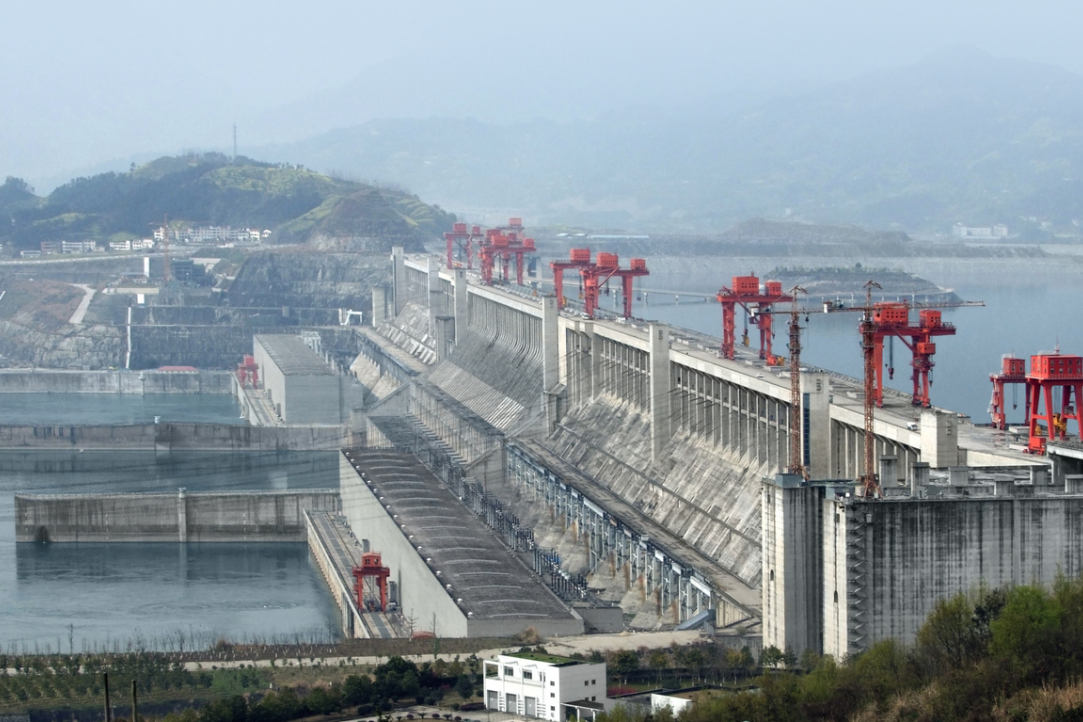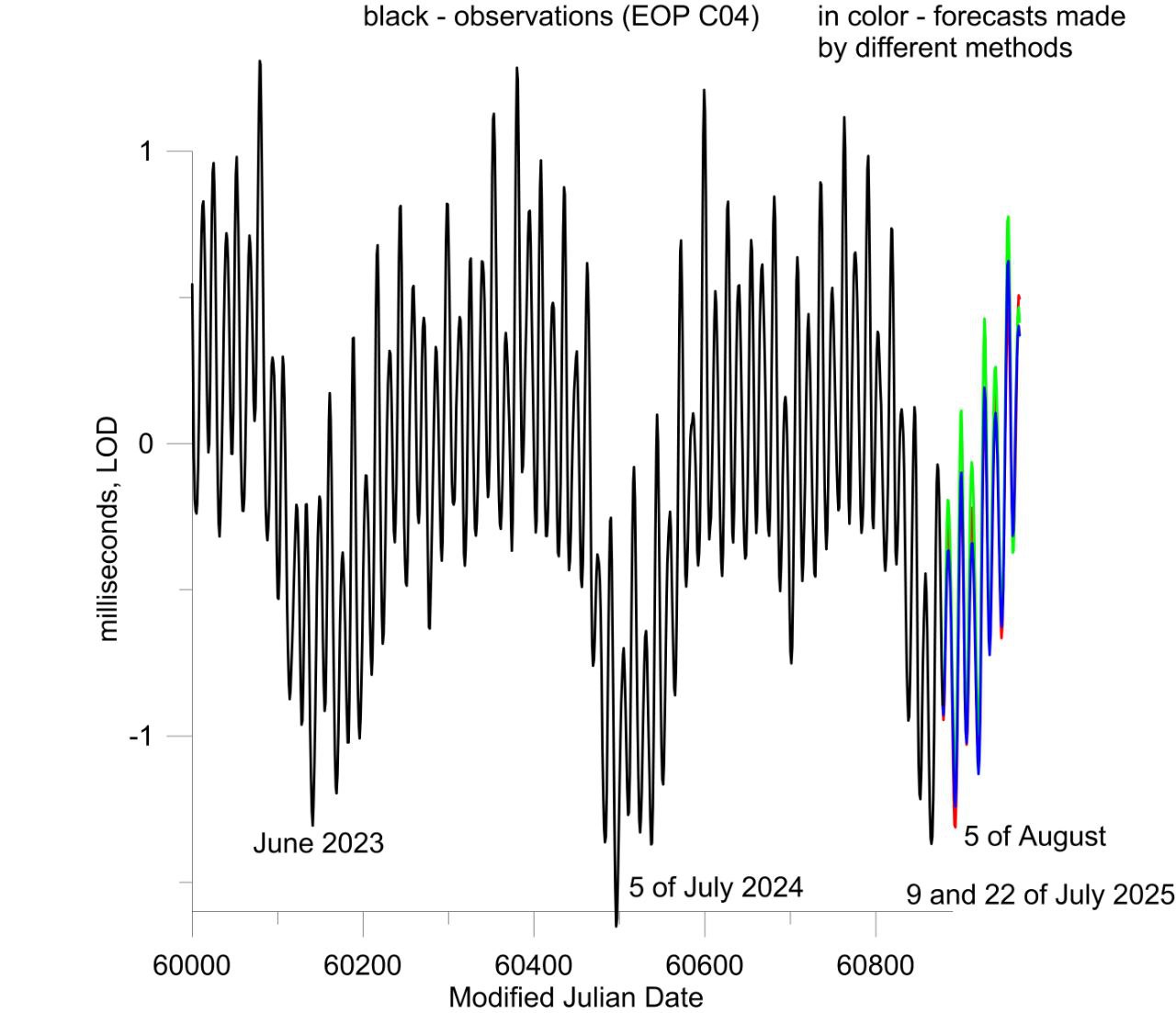Leap Second: How Chinese Dam Affects Planet Rotation Speed

Researchers predict that this summer, the planet may once again approach its maximum rotation speed. The causes of this acceleration are not fully understood, and there is still no definitive scientific explanation. Leonid Zotov, Professor at the School of Applied Mathematics, MIEM HSE, notes that if, in the past, the so-called ‘leap second’ was added on New Year’s Eve, then for the first time in history, the question has arisen about whether it is time to subtract one.
Scientists estimate that Earth’s maximum rotation speed may occur on July 9, July 22, and August 5 of the year 2025. They expect that the maximum reduction in the length of the day could be 1.51 milliseconds.
Of course, for humans, millisecond-level differences in the length of day are undetectable. However, these fluctuations are crucial for satellite navigation, global time synchronization, and precise scientific measurements. This is why scientists monitor them in real-time and even adjust the UTC (Coordinated Universal Time) atomic time scale to accommodate them.
‘In the past, on New Year’s Eve, a so-called “leap second” was always added when the need arose. Now, due to the acceleration of Earth’s rotation, there has been a question about whether it is time to subtract one. This may be the first time in history,’ explained Leonid Zotov, Professor at the School of Applied Mathematics, MIEM HSE.
Recently, Earth has started rotating faster. The reasons for this acceleration are still not fully understood. There are many theories: it could be related to the behaviour of the Earth’s core, atmospheric and ocean currents, or even the characteristics of the Moon’s orbit. However, there is no definitive scientific explanation for this phenomenon yet.
At that, some scientists believe that Earth's rotation can both speed up and slow down due to human activity. Recently, there has been news in the media and on social networks about how the Chinese Three Gorges Dam has slowed down Earth's rotation, causing an increase in the length of the day. According to calculations by Dr. Benjamin Fong Chao from the Shandong University of Science and Technology in Qingdao, 40 cubic kilometres of water from the Three Gorges Dam slightly changed Earth's moment of inertia. This has caused the day to lengthen by 0.06 microseconds and the axis of rotation to shift by two centimetres, according to calculations.
According to Leonid Zotov, this is possible, but such small changes are not yet detectable by modern instruments. Even though we are talking about the melting of glaciers in Greenland (270 gigatonnes per year) and Antarctica (150 gigatonnes per year), which leads to an increase in world ocean levels by several millimetres per year, if it could slow down Earth's rotation, these changes are still within the limits of current measurement accuracy. Additionally, there are natural processes that can accelerate Earth's rotation. For example, the level of the Caspian Sea has been steadily declining by about 10 centimetres annually since the early 2000s. This decrease in water level is similar to the amount of water held by the largest Chinese dam. However, while this water has accumulated in a dam once, it has been decreasing in the Caspian for more than two decades.

If we assume that this water evaporates and does not return to the same latitude, then Earth's rotation really accelerates. The effect of the shallowing of the Caspian Sea is stronger than that of the dam and is counter-directional, meaning it accelerates the rotation of Earth. The reasons for the decrease in water levels in the Caspian Sea are still unknown. Scientists are exploring several possible causes, including a reduction in the flow of the Volga River, increased evaporation, tectonic activity, and subsidence of the sea floor. They are also actively studying atmospheric, climatic, and geological factors, but have not yet reached any definitive conclusions. However, the observed increase in Earth’s rotational speed is too sinificant to be explained only by the shrinking of the Caspian Sea or other surface processes. Since 2020, scientists have recorded unprecedented values, indicating that Earth is rotating faster than at any time since accurate measurements started in the 1950s. The shortest day in history was recorded on July 5, 2024. It was 1.66 milliseconds shorter than the usual length of a day.
‘Most likely, the processes occurring inside the planet, such as the complex movement of the core, are likely responsible for this unusual event. However, oceanic and atmospheric models are not able to fully explain this sharp acceleration. Scientists continue to investigate the phenomenon in order to better understand it,’ says Leonid Zotov.
See also:
Banking Crises Drive Biodiversity Loss
Economists from HSE University, MGIMO University, and Bocconi University have found that financial crises have a significant negative impact on biodiversity and the environment. This relationship appears to be bi-directional: as global biodiversity declines, the likelihood of new crises increases. The study examines the status of populations encompassing thousands of species worldwide over the past 50 years. The article has been published in Economics Letters, an international journal.
Scientists Discover That the Brain Responds to Others’ Actions as if They Were Its Own
When we watch someone move their finger, our brain doesn’t remain passive. Research conducted by scientists from HSE University and Lausanne University Hospital shows that observing movement activates the motor cortex as if we were performing the action ourselves—while simultaneously ‘silencing’ unnecessary muscles. The findings were published in Scientific Reports.
Russian Scientists Investigate Age-Related Differences in Brain Damage Volume Following Childhood Stroke
A team of Russian scientists and clinicians, including Sofya Kulikova from HSE University in Perm, compared the extent and characteristics of brain damage in children who experienced a stroke either within the first four weeks of life or before the age of two. The researchers found that the younger the child, the more extensive the brain damage—particularly in the frontal and parietal lobes, which are responsible for movement, language, and thinking. The study, published in Neuroscience and Behavioral Physiology, provides insights into how age can influence the nature and extent of brain lesions and lays the groundwork for developing personalised rehabilitation programmes for children who experience a stroke early in life.
Scientists Test Asymmetry Between Matter and Antimatter
An international team, including scientists from HSE University, has collected and analysed data from dozens of experiments on charm mixing—the process in which an unstable charm meson oscillates between its particle and antiparticle states. These oscillations were observed only four times per thousand decays, fully consistent with the predictions of the Standard Model. This indicates that no signs of new physics have yet been detected in these processes, and if unknown particles do exist, they are likely too heavy to be observed with current equipment. The paper has been published in Physical Review D.
HSE Scientists Reveal What Drives Public Trust in Science
Researchers at HSE ISSEK have analysed the level of trust in scientific knowledge in Russian society and the factors shaping attitudes and perceptions. It was found that trust in science depends more on everyday experience, social expectations, and the perceived promises of science than on objective knowledge. The article has been published in Universe of Russia.
Scientists Uncover Why Consumers Are Reluctant to Pay for Sugar-Free Products
Researchers at the HSE Institute for Cognitive Neuroscience have investigated how 'sugar-free' labelling affects consumers’ willingness to pay for such products. It was found that the label has little impact on the products’ appeal due to a trade-off between sweetness and healthiness: on the one hand, the label can deter consumers by implying an inferior taste, while on the other, it signals potential health benefits. The study findings have been published in Frontiers in Nutrition.
HSE Psycholinguists Launch Digital Tool to Spot Dyslexia in Children
Specialists from HSE University's Centre for Language and Brain have introduced LexiMetr, a new digital tool for diagnosing dyslexia in primary school students. This is the first standardised application in Russia that enables fast and reliable assessment of children’s reading skills to identify dyslexia or the risk of developing it. The application is available on the RuStore platform and runs on Android tablets.
Physicists Propose New Mechanism to Enhance Superconductivity with 'Quantum Glue'
A team of researchers, including scientists from HSE MIEM, has demonstrated that defects in a material can enhance, rather than hinder, superconductivity. This occurs through interaction between defective and cleaner regions, which creates a 'quantum glue'—a uniform component that binds distinct superconducting regions into a single network. Calculations confirm that this mechanism could aid in developing superconductors that operate at higher temperatures. The study has been published in Communications Physics.
Neural Network Trained to Predict Crises in Russian Stock Market
Economists from HSE University have developed a neural network model that can predict the onset of a short-term stock market crisis with over 83% accuracy, one day in advance. The model performs well even on complex, imbalanced data and incorporates not only economic indicators but also investor sentiment. The paper by Tamara Teplova, Maksim Fayzulin, and Aleksei Kurkin from the Centre for Financial Research and Data Analytics at the HSE Faculty of Economic Sciences has been published in Socio-Economic Planning Sciences.
Larger Groups of Students Use AI More Effectively in Learning
Researchers at the Institute of Education and the Faculty of Economic Sciences at HSE University have studied what factors determine the success of student group projects when they are completed with the help of artificial intelligence (AI). Their findings suggest that, in addition to the knowledge level of the team members, the size of the group also plays a significant role—the larger it is, the more efficient the process becomes. The study was published in Innovations in Education and Teaching International.



